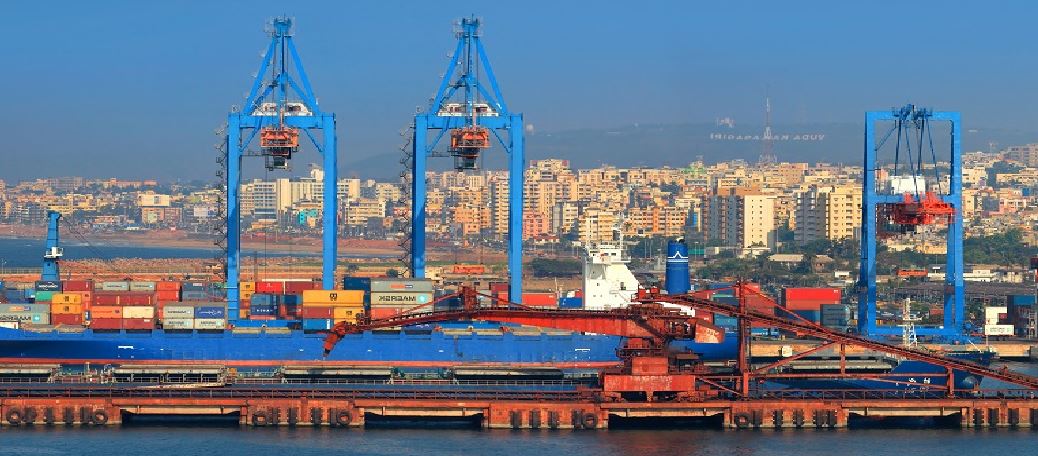
Danger of self-sufficiency
- June 24, 2020
- 0

When Prime Minister Narendra Modi introduced the concept of self-reliance in his television message informing the country about the relief and stimulus package of the government, he was cautious about marking the policies that would isolate the country separately. He said that self-sufficiency will help the country to connect with the global economy. In later days some senior government officials also insisted that self-reliance does not mean protectionism. Addressing to Confederation of Indian Industry, he said that reducing imports is a goal.
Theoretically this may be due to the increasing competitiveness of the country, but the recent remarks of Home Minister Amit Shah was far more clear about this. He urged Indians to use only those made in India. Asked if this will not isolate and weaken the economy, he said that he firmly believes that this will not weaken the economy nor will we be sidelined because the whole world is not allowed to ignore a strong market of 130 crore population of India.
If these statements are taken together, it is difficult to ignore that the government is returning to protectionism and import substitution and wants to make it the foundation of economic policy. The motivation of such a step can be understood. India is a major importer of manufactured goods and even though many of these items are finally manufactured in India, the local value addition to them is very modest. In such a situation, the idea of promoting indigenous manufacturing instead of imports from China is compatible with the current thought process. This goal is understandable but at the moment the methods are very important. Adopting a protectionist stance directly, rather than reform promoting manufacturing, would harm the country’s exports, domestic competition and consumers.
This leads to the preservation of economically infeasible and non-competitive production that leads to improper consumption of both domestic capital and foreign currency. The real problem is that the country’s manufacturing is non-competitive and that is why it needs government policies and reforms. In such a situation, import substitution can prove very dangerous.
आत्मनिर्भरता के खतरे
प्रधानमंत्री नरेंद्र मोदी ने जब देश को सरकार के राहत और प्रोत्साहन पैकेज के बारे में जानकारी देते हुए अपने टेलीविजन संदेश में आत्मनिर्भरता की अवधारणा प्रस्तुत की तब वह देश को अलग-थलग करने वाली नीतियों को अलग से चिन्हित करने को लेकर सतर्क थे। उन्होंने कहा कि आत्मनिर्भरता देश को वैश्विक अर्थव्यवस्था से जोड़ने में मदद करेगी। कन्फेडरेशन आफ इंडियन इंडस्ट्री को संबोधित करते हुए उन्होंने कहा कि आयात को कम करना एक लक्ष्य है।
बाद के दिनों में कुद वरिष्ठ सरकारी अधिकारियों ने भी जोर देकर कहा कि आत्मनिर्भरता का अर्थ संरक्षणवाद नहीं है। सैद्धांतिक तौर पर यह देश की बढ़ती प्रतिस्पर्धी क्षमता की वजह से हो सकता है लेकिन गृहमंत्री अमित शाह की हाल की टिप्पणियां इस बारे में कहीं अधिक स्पष्ट रहीं। उन्होंने भारतीयों से आग्रह किया कि वे केवल भारत में बनी वस्तुओं का इस्तेमाल करें। यह पूछे जाने पर कि क्या इससे अर्थव्यवस्था अलग-थलग और कमजोर नहीं पड़ेगी, उन्होंने कहा कि उनका दृढ़ विश्वास है कि इससे अर्थव्यवस्था कमजोर नहीं होगी और न ही हम अलग-थलग पड़ेंगे क्योंकि पूरी दुनिया को भारत के 130 करोड़ आबादी वाले मजबूत बाजार की आवश्यकता है।
अगर इन वक्तव्यों को एक साथ देखा जाए तो इस बात की अनदेखी करना मुश्किल है कि सरकार संरक्षणवाद और आयात प्रतिस्थापन की ओर वापसी कर रही है और वह इसे आर्थिक नीति की बुनियाद बनाना चाहती है। ऐसे कदम की प्रेरणा समझी जा सकती है। भारत विनिर्मित वस्तुओं का बड़ा अयातक है और इनमें से कई वस्तुएं भले ही अंतिम तौर पर भारत में तैयार होती हों लेकिन उनमें स्थानीय मूल्यवर्द्धन बहुत मामूली होता है। ऐसे में चीन से आयात की जगह देसी विनिर्माण को बढ़ावा देने का विचार मौजूदा विचार प्रक्रिया के अनुकूल ही है। इस लक्ष्य को समझा जा सकता है लेकिन फिलहाल तरीके बहुत महत्त्वपूर्ण हैं। विनिर्माण को बढ़ावा देने वाले सुधार के बजाय सीधे संरक्षवादी रुख अपनाना देश के निर्यात, घरेलू प्रतिस्पर्धा और उपभोक्ताओं तीनों को नुकसान पहुंचाएगा।
ऐसे में अव्यवहार्य और गैर प्रतिस्पर्धी उत्पादन का संरक्षण होता है जो घरेलू पूंजी और विदेशी मुद्रा दोनों की अनुचित खपत करता है। असल दिक्कत यह है कि देश का विनिर्माण गैर प्रतिस्पर्धी है और इसी वजह से इसे सरकारी नीतियों और सुधार की आवश्यकता है। ऐसे में आयात प्रतिस्थापन बहुत खतरनाक साबित हो सकता है।































































